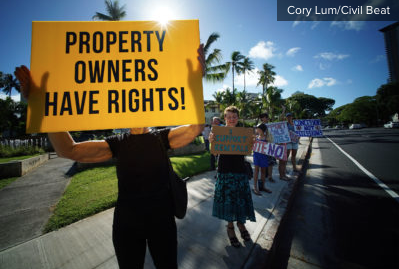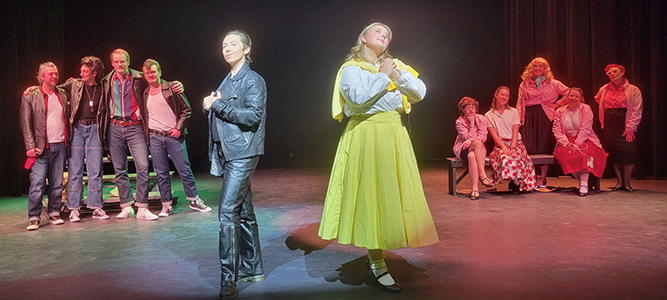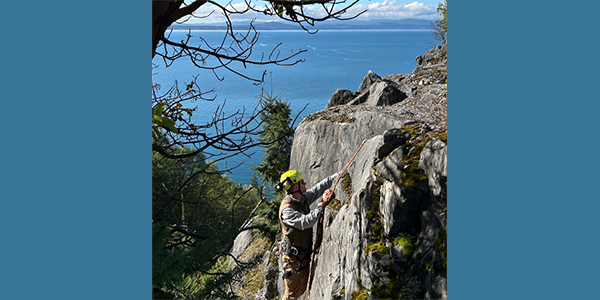The mayor sees the crackdown on vacation rentals as a tourism control measure.
||| FROM HONOLULU CIVIL BEAT ||| REPRINTED AT REQUEST OF READER
When Hawaii tourism came to a halt in 2020, Honolulu residents were able to feel what the island was like before the advent of short-term vacation rentals – and the millions of tourists they draw.
Mayor Rick Blangiardi wants to hold on to that feeling and is proposing what he calls an aggressive crackdown on the industry.
“Our plan here, and what we’re going to do, is to shut that business down,” the mayor said at a press conference last week. “We feel this is absolutely critical for our communities, so we’re not feeling overrun. This is about the city’s efforts to manage tourism while at the same time address housing needs.”
The Blangiardi administration is proposing new rules for short-term rentals. They are scheduled to be discussed at Wednesday’s Planning Commission meeting before proceeding to the Honolulu City Council.
Part of the plan is to further restrict the number of short-term rentals on Oahu.
Vacation rentals have been allowed to operate anywhere on Oahu if they’re booked for 30 days or more – regardless of whether the guest really stayed there the whole time. The new rules would require guests to book for at least 180 days, a less desirable time-frame for tourists and hosts.

Rental operators and their supporters protested outside city hall in 2019.
The new proposal would also prohibit all new short-term rentals in residential areas, regardless of whether the owner lives on site or not.
Legislation passed in 2019 allowed for about 1,700 units to be permitted in residential areas if the owner lived on site. A bed-and-breakfast permitting process was slated to begin in October 2020 but the Blangiardi administration delayed that registration. A lottery system was considered, but the administration decided not to pursue it.
Fines, which currently go up to $10,000 per day, would be increased to $25,000 per violation per day under Blangiardi’s plan.
The Blangiardi administration’s proposal addresses taxation too.Whole-home rentals, also known as transient vacation units, would be taxed at a higher hotel and resort rate.
The city estimates the new tax revenue will bring in over $3 million per year, which will be directed to a new short-term rental enforcement branch of DPP.
The legislation has already drawn support from citizen groups like Keep It Kailua, which have railed against the proliferation of illegal rentals for years.
Matthew Luchinskas, who has lived on the North Shore for about 50 years, said vacation rentals have changed his community over the years.
“We used to have a healthy mixture of school teachers, Kahuku nurses, carpenters, all kinds of people lived here,” he said. “So many people have had to move out, and investors come in and make it a vacation rental. It happens a lot on the North Shore.”
He said the proposed changes could have a significant impact.
READ FULL ARTICLE: www.civilbeat.org/2021/08/honolulu-airbnbs-shut-down-when-the-pandemic-began-the-mayor-wants-to-keep-it-that-way/
**If you are reading theOrcasonian for free, thank your fellow islanders. If you would like to support theOrcasonian CLICK HERE to set your modestly-priced, voluntary subscription. Otherwise, no worries; we’re happy to share with you.**









Thank you Lin for continuing to open our eyes to the fact that there have been many who have gone down this road before us. As a result there have been many studies and reports written that we can look at in regards to the pitfalls associated with overtourism. There have been many good ideas put forth by the people in San Juan County in regards to overtourism, and the resultant affordable housing and long-term rental problems we suffer from that deserve a response from our elected officials.
The only thing missing from the equation is the majority council’s political will to do so.
Fines of $10,000/day versus a one time $500 fine in SJC.